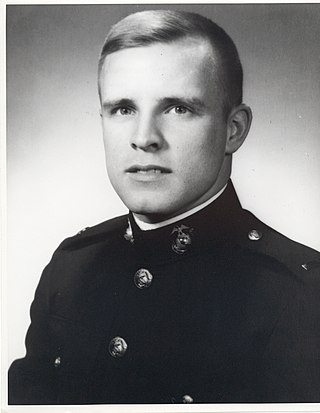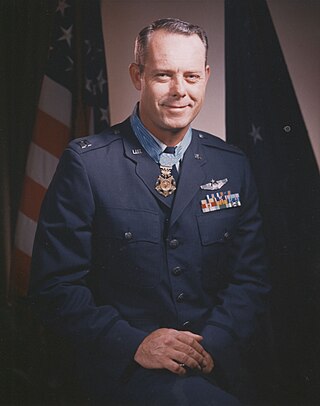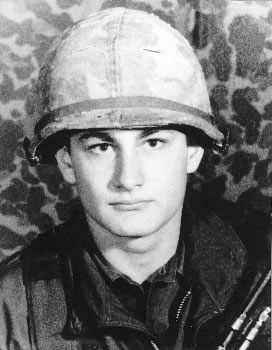The President of the United States of America, authorized by Act of Congress, March 3rd, 1863, has awarded in the name of Congress the Medal of Honor to First Lieutenant Larry L. Taylor, United States Army, for conspicuous gallantry and intrepidity at the risk of his life above and beyond the call of duty. First Lieutenant Larry L. Taylor distinguished himself by acts of gallantry and intrepidity above and beyond the call of duty while serving with Troop Delta, 1st Squadron, 4th Cavalry, 1st Infantry Division on June 18th, 1968, near the village of Ap Go Cong, Republic of Vietnam.
On this date, First Lieutenant Taylor commanded a light fire team of two Cobra helicopter gunships scrambled on a nighttime mission in response to an urgent call for aerial fire support from a four-man, long-range patrol team.
Upon arrival, First Lieutenant Taylor found the patrol team surrounded and heavily engaged by a larger Viet Cong force. He immediately requested illumination rounds and supporting artillery to assist with identifying the enemy positions.
Despite intense enemy groundfire, he flew at a perilously low altitude, placing a devastating volume of aerial rocket and machine gun fire on the enemy forces encircling the friendly patrol.
For over approximately 45 minutes, First Lieutenant Taylor and his wingman continued to make low-level, danger-close attack runs on the surrounding enemy positions.
When enemy fire increased from the village of Ap Go Cong, he requested artillery rounds with lower illumination altitudes be fired on that portion of the village so that the burning rounds ignited the enemy positions.
With both Cobra gunships nearly out of ammunition and the enemy still closing in on the patrol team, First Lieutenant Taylor flew the patrol team's potential ground evacuation route, founding it – finding it unviable based on the heavy enemy ground fire encountered.
Returning to the patrol team's location, he continued to circle it at a low level under intense enemy fire, employing his searchlight to make fake gun runs on the enemy positions to distract them from the patrol team.
Running low on fuel and with the patrol team nearly out of ammunition, First Lieutenant Taylor decided to extract the team with his two-man Cobra helicopter gunship – a feat never before accomplished.
He directed his wingman to fire their remaining minigun rounds on the patrol team's east flank. First Lieutenant Taylor then fired his own last minigun rounds on the enemy positions, opening an avenue of movement to the east for the patrol team.
He directed the patrol team to move 100 yards towards the extraction point, where First Lieutenant Taylor, still under enemy fire, landed his helicopter and instructed the patrol team to climb aboard anywhere they could.
With the four-man, long-range patrol team seated on rocket pods and skids, he evacuated them to the nearest friendly location, undoubtedly saving their lives.
First Lieutenant Taylor's conspicuous gallantry, his profound concern for his fellow soldiers, and his intrepidity at the risk of his life above and beyond the call of duty are in keeping with the highest traditions of military service and reflect great credit upon himself, his unit, and the United States Army. [11]


















